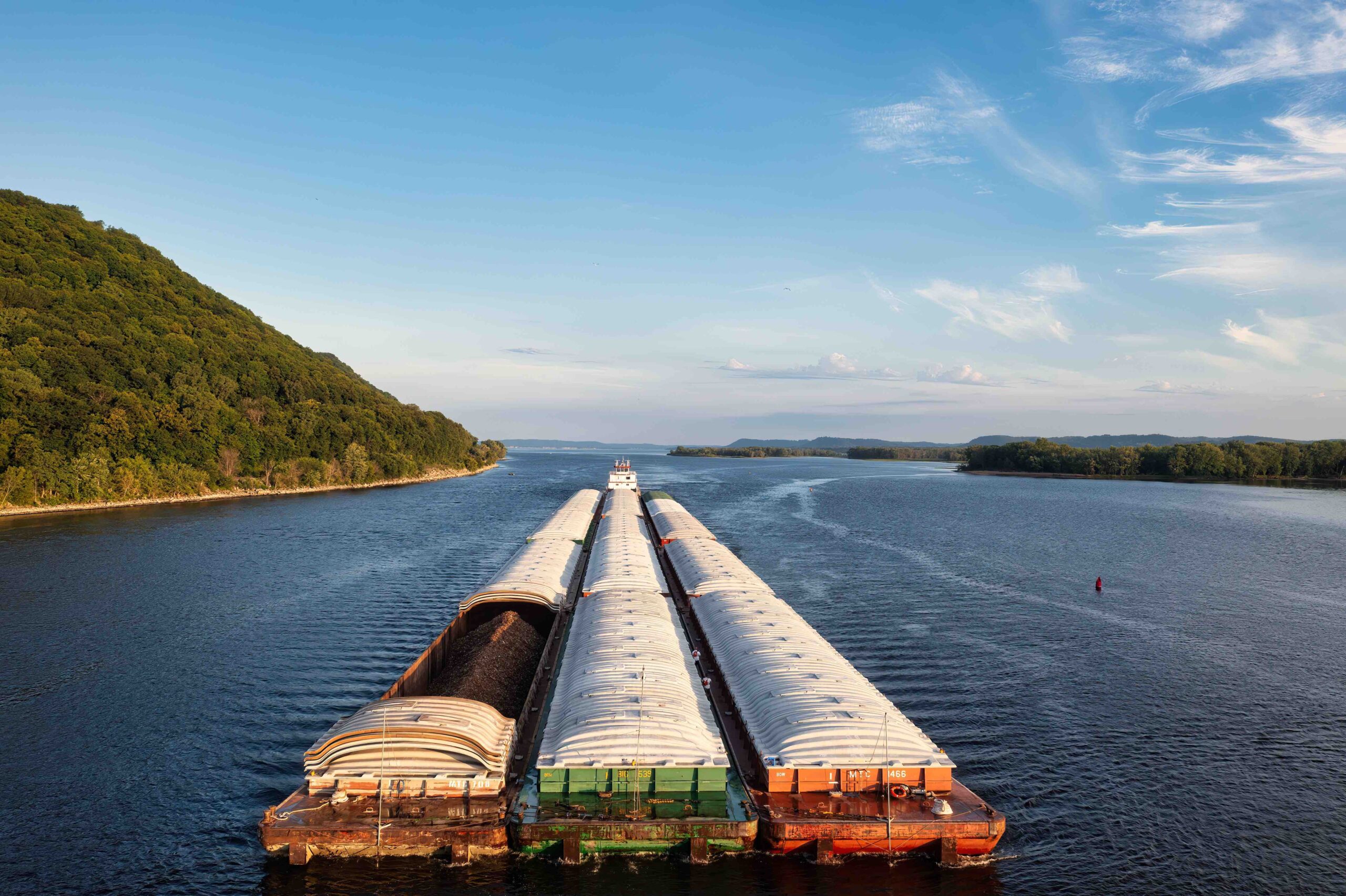In 2022, the Mississippi River experienced a severe drought that disrupted barge transportation from the Midwest to ports on the Gulf of Mexico. Our research found that the drought led to a 3.9% reduction in agricultural exports from Louisiana ports, resulting in agricultural trade losses of $563.9 million between July 2022 and January 2023. Wheat exports were the most affected, with a considerable decrease in export volume of 350 million kilograms at Louisiana ports. However, there was limited evidence of adverse trade effects for soybeans and corn.
While we found some evidence of negative effects on agricultural commodities at the beginning of the Mississippi River drought in 2022, there was a strong trade recovery when transportation disruptions ended. As a result, there was limited diversion for affected commodities except for wheat, which was diverted to East and West coast ports.
Figure 1 shows that non-Louisiana Gulf ports experienced more pronounced trade disruptions (‑15.1%) than Louisiana ports (-3.9%), despite Louisiana ports accounting for over 86% of agricultural exports shipped through Gulf ports. Our study also found evidence of considerable trade diversion, with positive trade effects for East coast (5.8%) and West coast ports (7.1%). These estimates imply that some agricultural suppliers opted for alternative transportation modes to facilitate foreign shipments via ports on the East and West coasts.
Our research highlights the urgent need to mitigate the impact of natural disasters and supply chain disruptions on barge-dependent agricultural exports, especially on the Mississippi River. While various federal and state agencies offer direct relief and recovery support for drought impacts, a more comprehensive plan may be necessary to address this potential long-term issue. The lack of tools to deal with similar supply chain disruptions can limit the production capacity of agricultural farmers and their access to foreign markets.
While the Bipartisan Infrastructure Law has authorized up to $108 billion to support federal public transportation programs, including barge transportation on the Mississippi River, it may take time for these solutions to take effect, and the federal funding allocation for barge shipping remains unclear. It is crucial to enhance the availability and efficiency of alternative transportation options. Our study underscores the importance of adopting proactive measures to mitigate the impacts of climate-induced trade disruptions on U.S. agriculture.
Figure 1: Agricultural Trade Effects of the 2022 Mississippi River Drought.

*This work was supported by the National Institute of Food and Agriculture through the Agriculture and Food Research Initiative Award 2019-67023-29343. This paper does not necessarily reflect the views of USDA. Full paper is available here: https://tinyurl.com/yn76tw3w.
Steinbach, Sabdro, and Xiting Zhuang. “Down the River: How the 2022 Mississippi River Drought Damaged.” Southern Ag Today 3(18.4). May 4, 2023. Permalink
Photo by Tom Fisk: https://www.pexels.com/photo/barge-on-the-mississippi-river-13649457/


